Archive
25 September 2018
Opening of Ruisdael Observatory

The Ruisdael Observatory – named after the 17th-century painter Jacob van Ruisdael – combines a nationwide dense network of measuring points with high-resolution simulations and the necessary computing power in order to map out changes in local weather, air quality and climate. The official opening of the observatory is on 27 September, with a meeting in the grounds of the KNMI measuring station at Cabauw (Cabauw Experimental Site for Atmospheric Research, CESAR). In April this new top-class research facility was awarded a certificate from NWO’s National Roadmap for Large-Scale Scientific infrastructure.
24 September 2018
Delft drone tests new sense-and-avoid technology in Australian outback
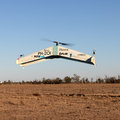
Researchers at Delft University of Technology (TU Delft) have developed new technology that enables a drone to record all stationary and moving objects (such as trees, masts, birds of prey, helicopters) during autonomous flight and continuously alter its flight path to avoid them.
20 September 2018
Nuon Solar Team achieves 2nd starting position
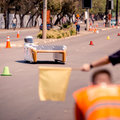
Last Wednesday, at the qualification for the starting position at the Sasol Solar Challenge 2018 in South Africa, the Japanese were just one second quicker than the Nuon Solar Team. So the Dutch team will start at Saturday 22 September, with their solar car Nuna9S, on the second position.
18 September 2018
Delft researchers push the boundaries of optical microscopy
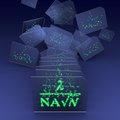
The field of optical microscopy research has developed rapidly in recent years. Thanks to the invention of a technique called super-resolution fluorescence microscopy, it has recently become possible to view even the smaller parts of a living cell. Now, by making a smart refinement to that technique, researchers at TU Delft have pushed its boundaries even further. Where previously objects measuring up to 10-20 nanometres could be observed, their method makes it possible to focus on structures of as tiny as 3 nanometres across.
16 September 2018
Students win world championship with high-tech recumbent bike
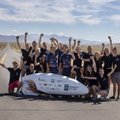
Cyclist Lieke de Cock won the world championship for cycling in the Nevada desert in the US with a speed of 120 km/h.
14 September 2018
New Netherlands Code of Conduct for Research Integrity
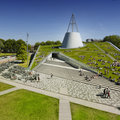
Today sees the launch of the new version of the Netherlands Code of Conduct for Academic Integrity. This new version revises and expands on the code of conduct first introduced in 2004, reflecting international developments in the field of academic integrity that have taken place since then.
13 September 2018
Novel flying robot mimics rapid insect flight
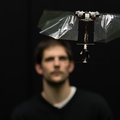
A novel insect-inspired flying robot, developed by TU Delft researchers from the Micro Air Vehicle Laboratory (MAVLab), has been presented in Science (14 September 2018).
12 September 2018
NWO Spinoza Prize for Delft bionanoscientist Marileen Dogterom
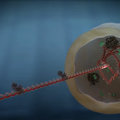
Marileen Dogterom, Professor of Bionanoscience at TU Delft, has been awarded the NWO Spinoza Prize; the highest award in Dutch science. Dogterom carries out research into the dynamics in living cells and leads a consortium which is aiming to build an entirely artificial cell.
12 September 2018
The Physiology of Impenetrable Skin: Colossus of the X-Men

One superpower that gains constant attention is that of impenetrability, a power possessed by superheroes like Luke Cage, Wonder Woman, Superman and Colossus. In a recent paper in Advances in Physiology Education, Barry W. Fitzgerald considers how Colossus’ skin might work.
11 September 2018
Improved ultrasound device makes images of carotid artery in real time

Researcher Maysam Shabanimotlagh has brought important improvements in ultrasound measurement a step closer. On Wednesday 12 September, he will be awarded his PhD at TU Delft for his work on this technology.
03 September 2018
25th edition Best Professor Award received by Cees Dekker
On Monday 3 September, Cees Dekker, Professor of Molecular Biophysics at the Faculty of Applied Sciences (AS) received the Best Professor Award 2018.
29 August 2018
Delft biotech pioneer Mark van Loosdrecht receives Stockholm Water Prize
Professors Mark van Loosdrecht (Delft University of Technology) and Bruce Rittmann (Arizona State University) will both receive the 2018 Stockholm Water Prize today for revolutionizing water and wastewater treatment. By developing microbiological processes in wastewater treatment, they have demonstrated the possibilities to cut costs, reduce energy consumption and even recover chemicals and nutrients for recycling.
23 August 2018
PULSE teaching building opens
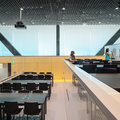
With the number of students increasing every year and the growing need to accommodate state-of-the art teaching and learning methods, TU Delft has developed its new PULSE teaching building right at the heart of the campus.
17 August 2018
First large-scale market analysis of underground cybercrime economy

Cybercrime is easier to carry out as more and more online criminal services (commodities) become available. TU Delft researcher Rolf van Wegberg investigated the extent and growth of this specific online underground economy.
16 August 2018
Two million registrations for TU Delft MOOCs

TU Delft recorded its two-millionth registration for its free online courses (MOOCs). TU Delft now offers a range consisting of 88 MOOCs. Solar Energy was the first and has so far had 206,000 registrations.
06 August 2018
Students from Delft and Amsterdam testing high-tech bicycle on F-16 runway
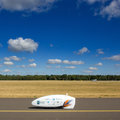
The Human Power Team, a student project of the TU Delft and the Vrije Universiteit of Amsterdam, tested on Sunday 5 August their new aerodynamic bicycle: the VeloX 8.
30 July 2018
Scientists to help Twitter gain insight into quality of online discussions

An interdisciplinary team of researchers from Leiden University, Syracuse University, Bocconi University and Delft University of Technology has obtained a grant from Twitter to research and develop tools to help identify behaviors that threaten the quality of the discussions on that social media platform. In the team, TU Delft researcher Nava Tintarev (Delft University of Technology) will assess the presence of echo chambers.
27 July 2018
ERC Starting Grants for seven TU Delft researchers

The European Research Council has awarded ERC Starting Grants to seven TU Delft researchers. The grants (1,5 million euros for a five-year programme) are intended to support scientists who are in the early stages of their career and have already produced excellent supervised work.
26 July 2018
Launch of TU Delft Student Rocket Fails
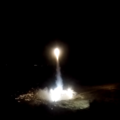
On Thursday 26 July at 03:30 AM, students from the Delft University of Technology, made an attempt with a home-built rocket (Stratos III) to beat the European altitude record and reach the threshold of space. Twenty seconds after the launch the rocket disintegrated above the safety zone at sea. The team and INTA (Instituto Nacional de Técnica Aeroespacial) are currently investigating the anomaly and the cause of the failed attempt.
23 July 2018
TU Delft students second in Hyperloop Pod Competition
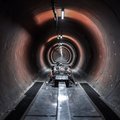
On Sunday 22 July, four student teams took on a challenge to race as fast as possible through a 1.2-kilometre Hyperloop test tunnel at SpaceX headquarters in Hawthorne, California. The team from Delft achieved a speed of 142 km/h, putting them in second place behind the WARR Hyperloop team from Munich University of Technology.
22 July 2018
Delft Hyperloop in final of the SpaceX Hyperloop Pod Competition
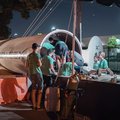
On Sunday 22 July, the Delft Hyperloop student team from TU Delft competes in the final of the Hyperloop Pod Competition at SpaceX headquarters in Hawthorne, California. During the final, four student teams take on the challenge of racing through a 1.2-kilometre test tunnel, built by SpaceX in 2016. The Hyperloop is a super-high-speed futuristic mode of transport, conceived by Elon Musk.
20 July 2018
Uncovering the interplay between two famous quantum effects
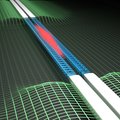
The Casimir force and superconductivity are two well-known quantum effects. Separately, these phenomena have been thoroughly studied.
16 July 2018
Seven Veni’s for TU Delft researchers

NWO has announced the Veni recipients for 2018. Amongst them are seven scientists from Delft University of Technology.
16 July 2018
TU Delft starts top research facility for energy system of the future
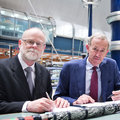
The integration of new technologies in the energy system is a vital aspect of the energy transition. As yet there are no facilities for testing new components in the high-voltage grid. TU Delft is changing this situation by building the ESP Lab (Electrical Sustainable Power Lab, Powered by TenneT). This lab will be a unique facility for top-class research into system integration in the energy system. This research is needed to be able to develop the energy system of the future.
10 July 2018
Environmental benefits of pay-per-wash business model revealed

Researchers from TU Delft and Lund University (Sweden) have demonstrated in practice that paying per wash results in the more economical use of washing machines. Their findings are being published in the Journal of Cleaner Production.
06 July 2018
Delft simulation model for optimum performance during team time trials

During his Mechanical Engineering degree programme, TU Delft student Mats Overtoom came up with a mathematical model that could provide answers to such questions as ‘What is the optimum changeover schedule for a cyclist in a team time trial?’ and ‘How fast does he need to cycle up a mountain to reach optimum performance?’. The input for the simulation model was data from cyclists from Team Sunweb and specific track information. It gives the Dumoulin team strategic tips for optimum performance, the best order of the cyclists and the length of turns on the front during a team time trial.
04 July 2018
Extreme sea levels predicted to increase along global coastlines

Future global warming will lead to an increase in ‘extreme sea levels’, with consequent flood risks to coastal infrastructure and human populations. An international research team from Italy, Greece, the Netherlands (TU Delft / Deltares) and the UK published this new research in Nature Communications.
03 July 2018
Metrology institute NMi relocates to TU Delft Campus
This summer, metrology institute NMi will relocate to the TU Delft Campus. The company – which specialises in testing, certifying and training in the field of metrology...
02 July 2018
Cees Dekker surprised with Best Professor Award 2018

On Monday 2 July, Cees Dekker, Professor of Molecular Biophysics at the Faculty of Applied Sciences (AS), was surprised...
27 June 2018
QuTech’s Menno Veldhorst named to MIT Technology Review’s 2018 Innovators Under 35 List
Menno Veldhorst has been named to MIT Technology Review’s prestigious annual list of Innovators Under 35. Menno Veldhorst has invented a faster path to real-world quantum circuits by making it possible for them to be printed on silicon—the way computer chips have been printed for decades. Prior to Veldhorst’s innovation, it was considered impossible to make usable, semiconductor-based quantum circuits on silicon that would be stable enough to perform useful calculations.
25 June 2018
Bacteria as living factories for the production of powerful antibiotics
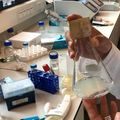
By definition, antibiotics kill bacteria. Nevertheless, TU Delft researchers have succeeded in engineering bacteria to produce promising amounts of a simple carbapenem antibiotic. Carbapenem antibiotics are effective against many bacteria and are usually only used when other antibiotics fail. They are currently only produced synthetically – an expensive process that also leads to chemical waste. This research suggests that by using bacteria as ‘living factories’, carbapenems might also be produced biologically.
21 June 2018
Bedrock below West Antarctica rising surprisingly fast

Researchers have found that the bedrock below the West Antarctic Ice Sheet is rising much more rapidly than expected, revealing a very different Earth structure than previously believed. This discovery has important implications in understanding climate changes in Antarctica. The team of researchers, from ten universities including TU Delft, report on their findings in Science on June 22th.
14 June 2018
Antarctica ramps up sea level rise
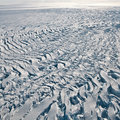
Ice losses from Antarctica have increased global sea levels by 7.6 mm since 1992, with two fifths of this rise (3 mm) coming in the last five years alone.The findings are from a major climate assessment known as the Ice Sheet Mass Balance Inter-comparison Exercise (IMBIE), to which TU Delft also contributed, and are published today in Nature.
13 June 2018
Delft scientists make first ‘on demand’ entanglement link

Researchers at QuTech in Delft have succeeded in generating quantum entanglement between two quantum chips faster than the entanglement is lost. Entanglement - once referred to by Einstein as "spooky action" - forms the link that will provide a future quantum internet its power and fundamental security.
12 June 2018
In-depth analysis of safety for swimmers around the Sand Engine
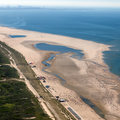
Pumping huge volumes of sand onto the coastline has effects on currents, waves and swim safety. Max Radermacher has compiled the first analysis of this problem to allow targeted measures (such as extra coastguards) to be taken where necessary. Radermacher will be awarded a PhD at TU Delft for his work on this subject on Friday 15 June.
12 June 2018
TU Delft students head to Florida with autonomous vessel
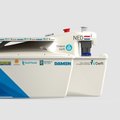
From 18 to 24 June 2018, the ‘Trident Delft’ team will be battling against student teams from all around the world in the International RoboBoat Competition in Daytona, Florida.
07 June 2018
TU Delft helps develop digital ID for use on your phone

In addition to your passport and driving licence, a phone application that enables you to prove your identity quickly and securely and also offers even more privacy options could soon be possible. As part of the Dutch Blockchain Coalition, Delft University of Technology (TU Delft, The Netherlands) has joined forces with the Netherlands Identity Data Agency (RvIG), a division of the Ministry of Foreign Affairs and Kingdom Relations (BZK), IDEMIA (the current manufacturer of Dutch passports) and law firm CMS, in developing an initial prototype for a digital stamp that could fulfil this purpose in the future. This digital identity is based on TU Delft’s innovative blockchain technology, known as Trustchain. The prototype was demonstrated at a BZK event held on 7 June. After the summer, a consumer trial of this technology will be launched in two Dutch municipalities.
07 June 2018
4TU Resilience Engineering Centre officially launched

Large power failures or heavy storms demonstrate how vulnerable our infrastructure is. The four technical universities in the Netherlands (Delft University of Technology, Eindhoven University of Technology, University of Twente, and Wageningen University and Research) are joining forces in the field of Resilience Engineering. On 7 June, the plans for the centre have been explained during an international launch event in Rotterdam.
06 June 2018
TU Delft ranks 52nd in QS World University Ranking
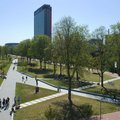
TU Delft is ranked in 52nd position in the new QS World University Ranking that has been published on 6 June, a rise of two positions compared with last year.
04 June 2018
TU Delft Partners with Ripple to Accelerate Innovation in Blockchain & Cryptocurrency
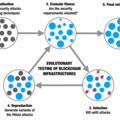
Delft University of Technology today announced their participation in the University Blockchain Research Initiative, a new program founded by Ripple to support academic research, technical development and innovation in blockchain, cryptocurrency and digital payments.